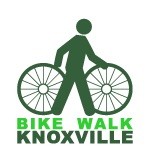(This article was submitted by Dr. Caroline Cooley, president of Walk Bike Knoxville, on behalf of herself and others who support Recode Knoxville. We’re glad to share their point of view.)
On Oct. 23, KnoxTNtoday published a piece by Nick Della Volpe suggesting that Recode Knoxville and various redevelopment initiatives were a piece of social engineering by the City of Knoxville to force people out of their private cars and onto dreaded buses and bicycles. If that were actually the goal of these initiatives, they would be miserable failures. Most people in Knoxville still drive to work by themselves (80 percent), compared with about two percent using public transit, and less than one percent on bicycles.
But social engineering is not the goal of Recode. The goal is to give people more choices of where they live and how they get around. Few ideas are more rooted in our American traditions than making these types of choices for yourself and your family.

These photos from Sequoyah Hills show the diversity of homes and neighborhood retail in this walkable/bikeable community.
If you were to ask your friends and family to list their favorite places to visit and spend time in Knoxville, the list would probably include Market Square, Sequoyah Hills and Fountain City. These places are memorable, interesting and unique because they were largely built before street design made walking hazardous for your health, and before single-use zoning outlawed neighborhoods with a diverse mix of housing types. It’s this diverse mix of housing types – single-family, two-family homes, accessory dwelling units and even small-scale apartment buildings – that helps sustain the walkable retail that’s tucked away at the heart of Sequoyah Hills. Similar walkable retail has recently been added back into neighborhoods like Fourth & Gill and Old North Knoxville.
Opposition to Recode often arises from a fear of change. That’s understandable. People love and appreciate their neighborhoods just the way they are, and many have long memories of past changes that were not positive.
But Knoxville and Knox County are growing. Neighborhoods in the city are becoming more desirable and more expensive. If the new households in our community are going to find homes in the city, there has to be more diversity and availability of housing. The alternative is the continued planting of subdivisions on valuable farmland farther and farther from the urban core.
And location isn’t the only difference between the type of development that occurs at the edges and what can occur in the city. Recode will create opportunities for small, incremental changes that accommodate more neighbors, as opposed to the cookie-cutter developments that erupt seemingly overnight at the suburban periphery.
This is the way our neighborhoods have always changed – incrementally. Change is inevitable, unless we choose stagnation. But change can be a positive, for ourselves and for the neighbors we haven’t even met yet, if we are open to new ideas that – come to think of it – aren’t even all that new. They’re already present in some of our oldest, most desirable neighborhoods.
I urge you to learn more about Recode from reliable sources, starting at recodeknoxville.com. Keep an open mind. If we work together, listen to each other and speak our piece with respect, we can create something that makes Knoxville an even better place than it is today.

